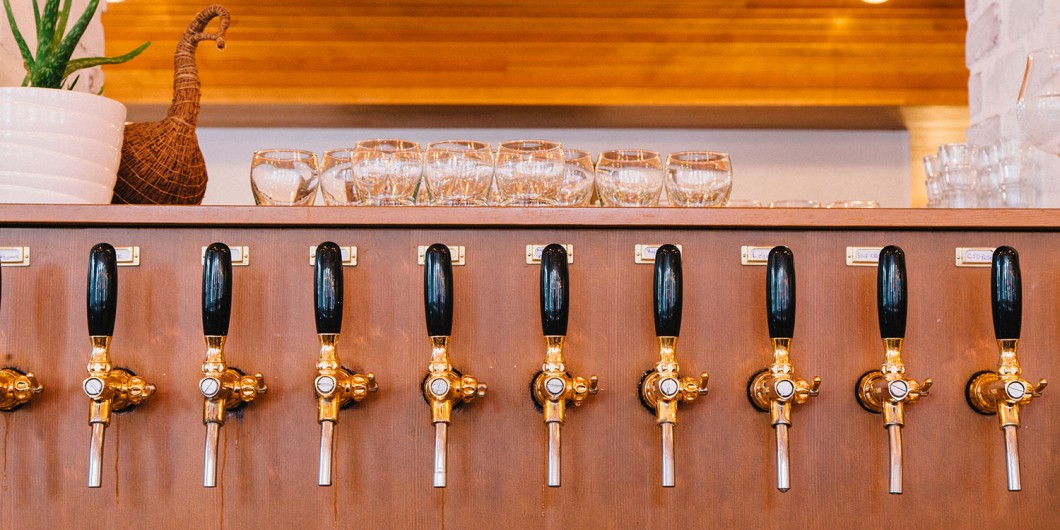Growing pains of the microbrewery industry
Why do microbreweries find it so difficult to go macro?
Beer drinkers have a wide variety of tastes and as a result, microbreweries are flourishing. In Quebec, there are five times more than there were in 2002, despite the fact that global beer consumption is dropping. But how is it that no microbrewery has been able to reach the level of the three biggest players? Why are the little guys finding it hard to go big?
Combining experience with current consumer trends
Microbrews are growing in popularity, but mostly in pubs and restaurants. Since 85% of beer is consumed at home, microbreweries need to get their beer on grocery store shelves. Expansion will require finding points of sale and making that product stand out. That’s why many microbreweries leverage originality to inspire consumers to take the first sip. This includes finding unique names (Archibald), using distinct packaging (Farnham, by lg2Boutique) or creating a strong presence on social media (Muskoka Brewery has +17,000 followers on Instagram and +21,000 on Twitter).
Does artisanal mean staying small?
Microbrew fans love beer made by small, and especially artisanal, breweries. But this logic will continue to limit growth until the size of a brewery is no longer associated with the skill (craft) of the brewer. Let’s also remember that if a brewery wants to offer competitive pricing, it will have to expand operations. The temptation is to then cut corners in order to make more product available on store shelves. That’s why so many microbreweries are facing the crucial question: “How to democratize our product without losing our soul?”
Sell up, expand or just keep going?
Microbreweries are always looking for solutions. Some smaller players, once they’ve hit a strategic size, will choose to sell the company or merge with a larger brand for the investment capital, marketing heft or distribution network being offered. In fact, the big breweries continue to pursue acquisitions of and partnerships with micros (Rolling Rock and Labatt-AB InBev; Granville Island and Six Pints, a division of MolsonCoors). Some big breweries are even launching their own “fake” craft beers, which are marketed as artisanal.
Some microbreweries opt for greater geographical reach, which enables them to expand without compromising on their reputation as a small operation. However, it should be noted that developing new markets requires additional cost and is generally less profitable than simply enhancing existing distribution lines.
For others still, staying a microbrewery and staying independent is the only option. That’s the case of Beau’s, a microbrewery based in Vankleek Hill, Ontario. For Owner and President Steve Beauchesne, being a microbrewery is more than a question of size—it’s how business is done. Beauchesne, who, 10 years ago, left his public service job with the government of Ontario to start Beau’s with his father, also believes that consumers are capable of appreciating the authenticity of his brewery: “If you don’t want to lose your soul, you have to pass the sniff test with your most loyal customers.”
In order to stay true to its vision, this family-run business believes that it must keep its independence at all cost. This is why the company recently launched an internal shareholder program to share the ownership of the brewery with its employees. For the Beauchesnes, this decision will ensure the company’s independence, solidify the engagement of their 160 employees and make certain that the company never loses touch with the human element.
Beau’s, which enjoys great social media success (30,000 fans on Facebook, almost as much on Twitter and 20,000 on Instagram), leveraged this news to demonstrate how enthusiastically its employees—previously worried about job security—welcomed the change. The announcement video was viewed more than 175,000 times on the Beau’s Facebook page. Clearly, the brand’s independence is cherished by both its founders and its fans. Beau’s now proudly proclaims to be: “Family run. Employee owned. Totally independent.”
A growing number of microbreweries are struggling with questions surrounding independence and company size, all part of the desire to grow, yet maintain a unique spark. How to lose the “micro” label without losing soul? Let’s raise our glasses to the first artisanal macrobrewery!
Photo: Kelly Jacob


